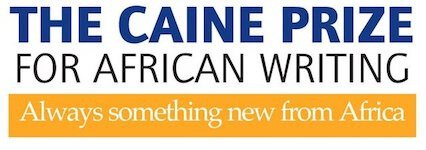Short Story Surgery at port harcourt Festival - Nigeria 2014
The one day surgery at the Port Harcourt festival was the first of its kind for the Caine Prize which has hosted annual 10 day workshops, for the Prize’s shortlisted writers and others who have caught the attention of the judges, since 2003.
The 3 facilitators of the short surgery were Ellah Wakatama Allfrey, Abubakar Ibrahim and Stanley Kenani. Stanley Kenani has written below about the experience from the facilitator’s point of view.
Participants: Jo Nwinyi, Ndubuisi Newman, Tope Rotimi, Ikenna Okeh, Victor Emmanuel Idem, Nihinlola Ifeoluwa, Kechi Nomu, Louis Ogbere, Chika Tobi Onwuasanya, Jennifer Nkem-Eneanya, Yomi Kolawole, Adeniyi Mopelola Omayeni, Owoyemi Olorunfemi, Pemi Aguda and Anaele Ihuoma
A day before the start of the Port Harcourt Book Festival, 14 writers came to the Niger Delta from all parts of Nigeria, selected from a list of 46 eligible applicants. So, these participants gathered in one of the conference rooms of the Presidential Hotel for a day-long short story surgery facilitated by Caine Prize Deputy Chair, Ellah Wakatama Allfrey, Abubakar Adam Ibrahim (shortlisted in 2013); and Stanley Onjezani Kenani (shortlisted in 2008 and 2012).
In its typical sense, a short story surgery is usually a step-by-step strategy that allows students to cut open their drafts and mess with the guts, adding or removing chunks to a piece. It is a tool that appeals to kinesthetic learners – and to everyone who thought writing was boring.
But that is not what we did in Port Harcourt. The surgery was of a different kind.
From the start we were worried about the methodology, about what to put in and what to leave out. The task was not made any easier by the fact that participants were of varying degrees of aptitude. There was a temptation to throw in everything: opening, voice, setting, point-of-view, character, dialogue, details, ending and many other aspects of the craft. But people spend years studying all these. A day was therefore far from enough. Besides, those with more polished skills could get bored if we dwelt on the basics.
"Stickfighting Days" is published by New Internationalist in the 2010 Caine Prize anthology, A Life in Full
We started by workshopping Olufemi Terry’s "Stickfighting Days", which was awarded the 2010 Caine Prize. We divided ourselves into three groups, and each group analysed the story based on a key element of the craft: setting, language and character.
The second part of the surgery involved discussing the stories of the participants themselves. Everyone had read these stories ahead of the surgery, and co-facilitators had made notes on each. Again participants were divided into three groups, and, with the author in a gag, each story was discussed in turn. Here, participants became surgeons: they tore into the stories as diplomatically as possible, providing vital constructive criticism in the process. Co-facilitators ended the day by providing one-on-one feedback to the participants.
According to the Director of the Caine Prize, Dr Lizzy Attree, the Port Harcourt One Day Short Story Surgery is a one-off event, for now, and was devised with the Port Harcourt Book Festival as part of the celebration of their 2014 UNESCO World Book Capital status.
Feedback from the writers
“The Caine Prize Short Story Surgery opened for me a whole new perspective on how to approach writing ”
“Ellah Allfrey [created a setting] which allowed [all] to speak, encouraged [all] to listen and persuaded [all] to learn ”
“[The surgery was] validating for me as a writer – ”
“There are things you feel you are good at until someone else show you how to be better
”
“I constantly see Mr Stanley’s face before me when I embark on too intense a description or explanation ”


